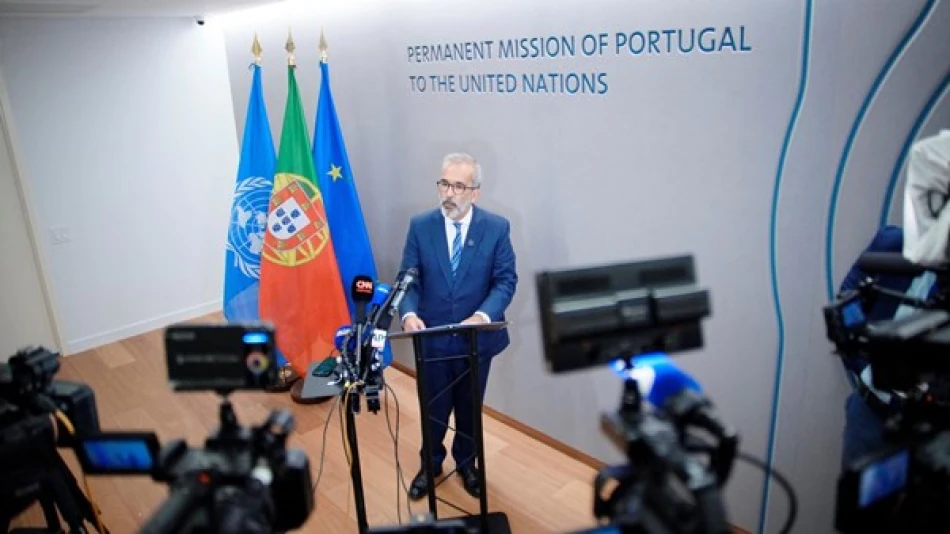
Portugal Officially Recognizes the State of Palestine
Portugal Joins Growing Wave of Countries Recognizing Palestinian Statehood
Portugal officially recognized Palestine as a state on Sunday, joining Britain, Canada, and Australia in a coordinated diplomatic move that signals growing international pressure for a two-state solution to the Israeli-Palestinian conflict. The announcement marks a significant shift in European policy and could influence other nations to follow suit.
A Coordinated Diplomatic Push
Portuguese Foreign Minister Paulo Rangel announced the decision at Portugal's permanent mission to the United Nations in New York, describing the recognition as "implementation of a fundamental and stable policy that enjoys broad acceptance."
The timing wasn't coincidental. Britain, Canada, and Australia made similar announcements on the same day, suggesting a coordinated effort among Western allies to present a unified front on Palestinian statehood.
Two-State Solution Gets Fresh Momentum
Rangel emphasized that Portugal "calls for a two-state solution as the only path toward lasting and just peace - peace that promotes coexistence and peaceful relations between Israel and Palestine."
This coordinated recognition comes at a critical time when the two-state solution has faced years of stagnation. The synchronized announcements suggest these countries believe formal recognition could help revive serious negotiations.
What This Means for International Relations
Breaking the Recognition Deadlock
For years, many Western nations held back on recognizing Palestine, arguing it should come through direct negotiations with Israel. But this new wave suggests a strategy shift - using recognition as a tool to encourage talks rather than waiting for them to succeed first.
Pressure on Other European Nations
Portugal's move puts pressure on other European Union members who haven't recognized Palestine yet. Countries like Germany and France now face questions about whether they'll join this growing coalition.
The EU has struggled to present a unified position on Palestinian recognition, with some eastern European members strongly supporting Israel while others push for Palestinian rights.
Historical Context and Timing
Currently, around 140 countries recognize Palestine as a state, but most major Western powers had held back until now. Sweden broke ranks in 2014 as the first major European country to recognize Palestine, facing significant diplomatic pushback at the time.
The coordinated nature of Sunday's announcements suggests these countries calculated that acting together would reduce individual diplomatic costs while maximizing impact.
Market and Economic Implications
These recognition moves could affect trade relationships and investment flows in the region. Companies operating in both Israel and Palestinian territories may need to navigate new diplomatic realities as more countries formalize relations with Palestine.
The announcements also signal to international investors that the political landscape around the Israeli-Palestinian conflict is shifting, potentially affecting long-term regional stability calculations.
What Comes Next
The real test will be whether this diplomatic momentum translates into concrete progress on the ground. Recognition alone doesn't solve the practical challenges of establishing a functioning Palestinian state or addressing security concerns that have derailed previous peace efforts.
But the coordinated nature of these announcements suggests a renewed international commitment to finding a solution. Other Western nations now face pressure to either join this recognition wave or explain why they're staying on the sidelines.
Most Viewed News

 Layla Al Mansoori
Layla Al Mansoori






